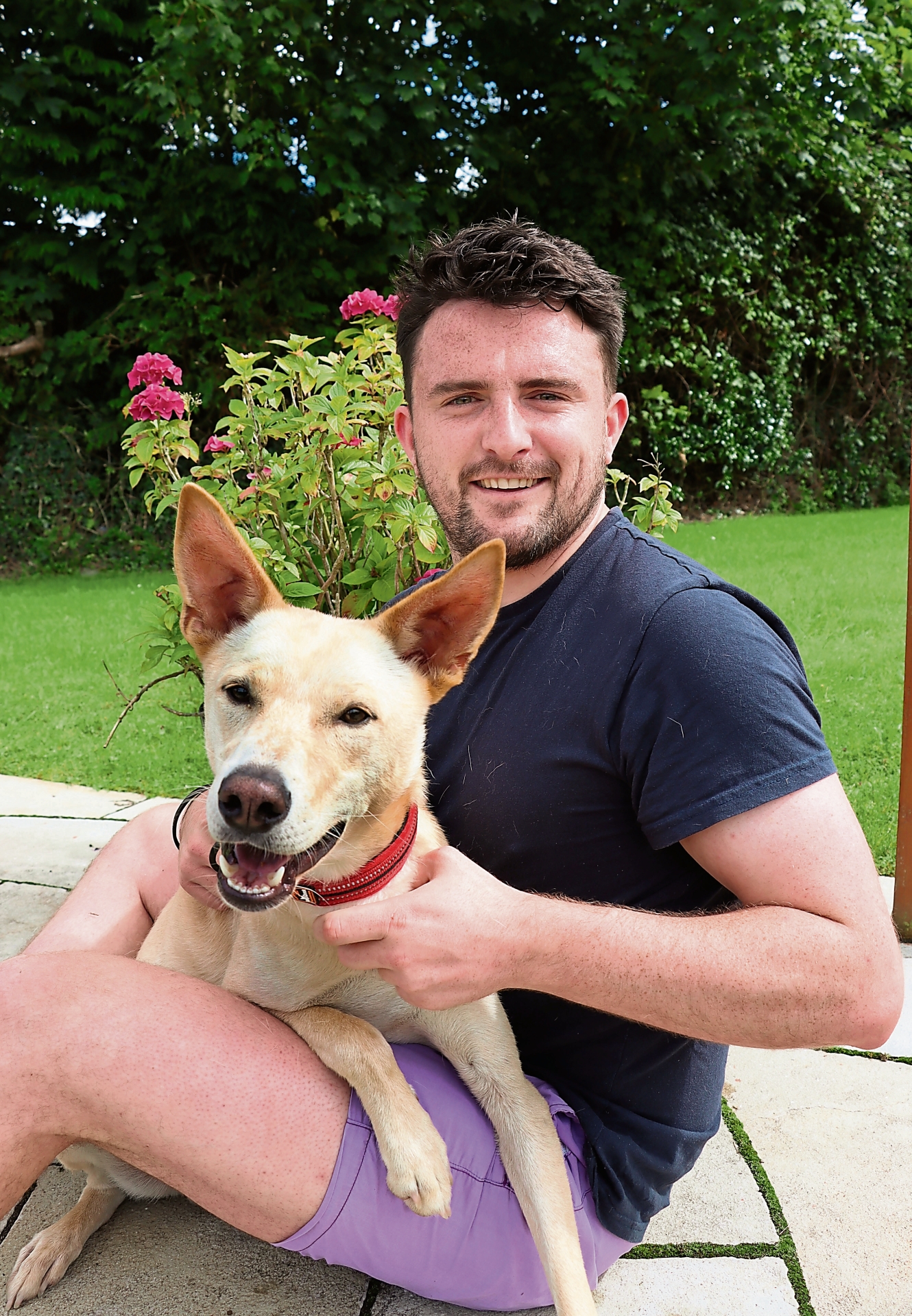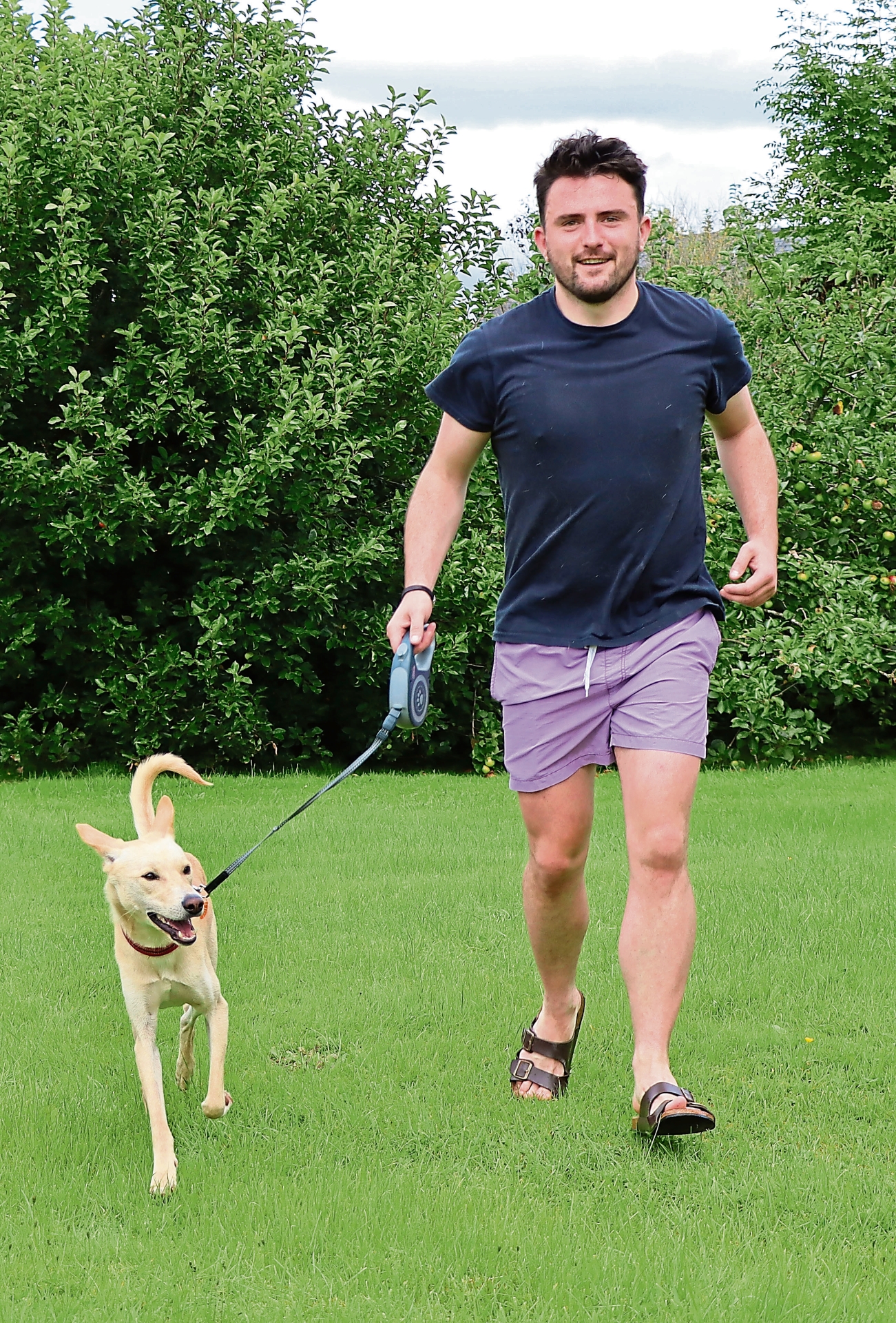
"SO, WHAT breed is he?” It's a question I am often asked of my dog Yasser, the answer of which leads to a more long-winded response than people are usually expecting.
“Well he’s a bit of a mix - he’s actually a rescue. I picked him up as a puppy in Palestine - in Bethlehem actually - and he’s been in Ireland almost a year. Yasser is his name…” is my general opener I reply with, which often raises more questions than answers.
The connection between the Irish and Palestinian people is something that long fascinated me.
While our pasts may have connected us - both ruled by outside forces and eventually by the British up until the early 20th century - the past century for Ireland and Palestine has since diverged and resulted in two very different realities for the two countries, never more stark in recent months.
The enduring solidarity between Ireland and Palestine however is very clear, as Irish people have continued to voice their support for Palestine over the decades and in weekly marches in recent months all across the country.
I travelled to Palestine in the summer of 2022 for what would be a two-month volunteer stint in the Middle East. I had finished one job and was set up to start another, and so my time in the West Bank began.
I volunteered in the Palestine Institute for Biodiversity & Sustainability - part of Bethlehem University (itself set up by the De La Salle Brothers - another Irish connection), where we were tasked with completing a medley of tasks including farming, cooking, guided tours, taxidermy (of insects too!) and feeding into the research of students.
The complex also contains the Palestinian Museum of Natural History, which took ownership of the anthropology and zoology of the region and serves as a unique centre of education for Palestinians and tourists alike in the West Bank.
It was in the museum one night that we heard the pining of little animals echoing in the valley. Soft yet whiney, this went on for some nights and never lessened or quietened.
The streets of Palestine, like in many parts of the world, are littered with stray dogs, who forage in rubbish bins and elsewhere to survive.

Often travelling in scrawny packs, they mostly keep to themselves, and tourists and locals alike leave them alone, as they are advised.
It was against this advice and better judgement that I and some volunteers began to feed a small litter of puppies who were nesting in the field next to the museum.
The adults in their pack weren’t returning as often as they should have, potentially due to their own hunger and need to travel for food, so we dropped some water, meat and bread over the wall to the pack of four newborns but kept our distance.
Within that pack there was one special little dog - the only boy - who had a whole lot going wrong for himself. He was by far the smallest, and shivered so violently as he moved around that he was often knocked off balance from that movement alone.
His weakness led him to being trapped between rocks that his siblings could climb easily, and it was his cries we had been hearing the loudest.
Eventually the adults in the pack re-appeared, so we thought we had maybe played our part in these puppies’ survival and that would be it.
READ MORE: Limerick man honoured for his 60 years of service with Civil Defence
After a two-day trip away from the museum however, we returned to hear the sole pining of the little male. The entire pack had left him alone, most likely due to his shaky walk stopping him from joining them.
He was in such a poor state that I made the decision to put him in a box and bring him to the vet. It was a good thing we did, as he was so sick from tick fever that the vet said he would probably not have survived another day out in the sun.
We brought him back to the museum (hidden in a shed from the management!), continued his treatment and fed him as much as he could eat, and finally named him “Lucky”.
The name wasn’t to last however.
After a few weeks of caring for and bonding with this very cute puppy (who had even started teething, much to the annoyance of all of us volunteers), it became clear that a plan for his future needed to be made before I departed.
I had partly been ignoring this, in the hope that some solution would be found or presented to me. Friends asked “would you take him home?”, and in the past volunteers had apparently done so with rescued cats, so it wasn’t a crazy idea…..
I had had dogs as a child but none since leaving for university, and while a dog wasn’t exactly planned, it most certainly wouldn’t be unwelcome - I had just always thought I would rescue at home though, as there are countless dogs in need of a home in sanctuaries and pounds across Ireland, no less so in Limerick.
It’s a similar story in Palestine, with just one charity sanctuary operating in the West Bank with limited space and rehoming possibilities.

It was through this sanctuary though that I met a family who offered to foster my dog; a deal that was rare to secure and one I could not back out of.
And so the dog would be mine! I would come back in six months once all of his vaccines were up to date and he was allowed to leave (as an Israeli dog - that’s a whole other story…)
Now bringing home a Palestinian dog, a rechristening of “Lucky” was proposed to me, some name with roots in the area, and so we decided on the name “Yasser”. And the name has stuck!
Yasser, the Palestinian pup, has been in Pallasgreen for almost a year now, after one failed attempt of bringing him to Ireland, a second flight which last-minute could not take him and, finally, a very expensive connecting flight via Istanbul being booked last-minute.
He took all of this in his stride, and is now a very happy, carefree and lazy dog who loves to both chill and socialise with other dogs his own size.
He’s not conditioned to play with a ball or come to his master when called (we’re still fighting that battle), but his street instincts for digging in bins and always being on the lookout for the next meal mean that he can easily be manipulated into behaving if there is food on the cards.
And that social need may require a visit to Limerick Animal Welfare in Kilfinane in the future to adopt a brother or sister…
Yasser has a story different to most - one that’s a nice introduction for me to say on his walks, at the beach or at Mungret dog park.
Nowadays, it inevitably leads to a conversation about what is happening in Gaza and what has happened over the last century for Palestinians - a group of people who were so welcoming to me and so fond of their connection to the Irish.
I could write countless pages about what I saw in Palestine and Israel during my visits in 2022 and 2023, which were all prior to the horrors of what is going on in Gaza right now.
The apartheid and injustice was clear as day to see - something that was pointed out to me during the moving process was that the airport I flew through with Yasser is not open for Palestinians to use, who instead have to travel by road to Jordan and fly from there.
There are so many eloquent Palestinian voices already sharing their lived realities with authenticity and realness that I encourage people to go and seek out online.
As Irish people I feel it’s our job to elevate these voices and use our standing globally to achieve justice for these people and deliver on a peaceful resolution for this long-standing conflict.
In a future where peace is guaranteed for Palestinians and Israelis in the Middle East, where global leaders pull up their pants and work towards that ceasefire and a lasting peaceful solution, then maybe I will go for that DNA test for Yasser. It will certainly answer more succinctly that question;
“So what breed is he?”.
Subscribe or register today to discover more from DonegalLive.ie
Buy the e-paper of the Donegal Democrat, Donegal People's Press, Donegal Post and Inish Times here for instant access to Donegal's premier news titles.
Keep up with the latest news from Donegal with our daily newsletter featuring the most important stories of the day delivered to your inbox every evening at 5pm.